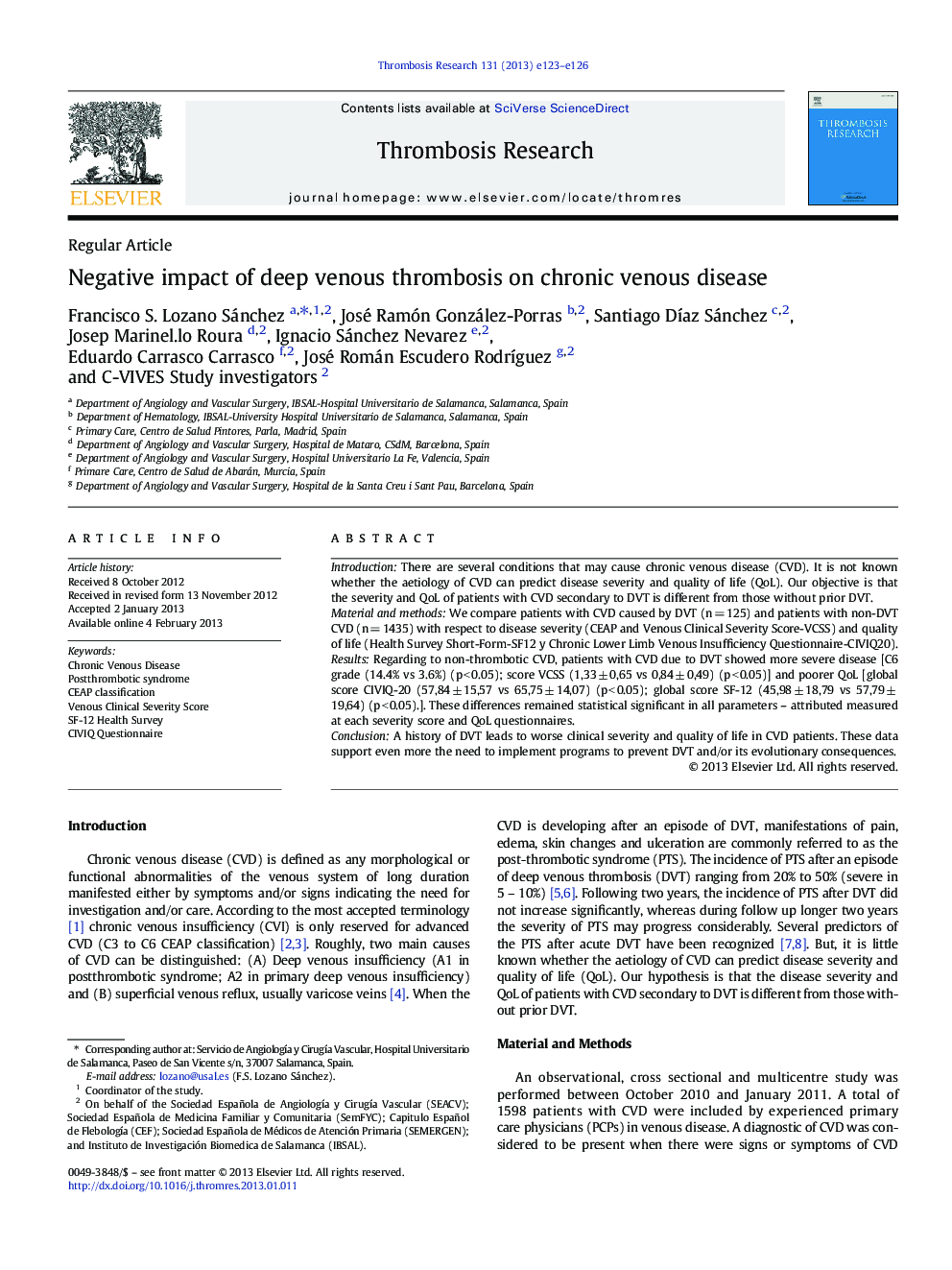| Article ID | Journal | Published Year | Pages | File Type |
|---|---|---|---|---|
| 3027227 | Thrombosis Research | 2013 | 4 Pages |
IntroductionThere are several conditions that may cause chronic venous disease (CVD). It is not known whether the aetiology of CVD can predict disease severity and quality of life (QoL). Our objective is that the severity and QoL of patients with CVD secondary to DVT is different from those without prior DVT.Material and methodsWe compare patients with CVD caused by DVT (n = 125) and patients with non-DVT CVD (n = 1435) with respect to disease severity (CEAP and Venous Clinical Severity Score-VCSS) and quality of life (Health Survey Short-Form-SF12 y Chronic Lower Limb Venous Insufficiency Questionnaire-CIVIQ20).ResultsRegarding to non-thrombotic CVD, patients with CVD due to DVT showed more severe disease [C6 grade (14.4% vs 3.6%) (p < 0.05); score VCSS (1,33 ± 0,65 vs 0,84 ± 0,49) (p < 0.05)] and poorer QoL [global score CIVIQ-20 (57,84 ± 15,57 vs 65,75 ± 14,07) (p < 0.05); global score SF-12 (45,98 ± 18,79 vs 57,79 ± 19,64) (p < 0.05).]. These differences remained statistical significant in all parameters – attributed measured at each severity score and QoL questionnaires.ConclusionA history of DVT leads to worse clinical severity and quality of life in CVD patients. These data support even more the need to implement programs to prevent DVT and/or its evolutionary consequences.
